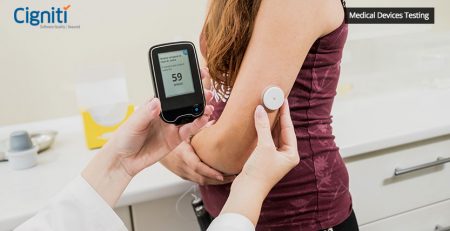5 Effective Ways To Get More Out Of Medical Device Testing
As far as medical devices go, there is more to testing than just plain verification and validation. The technology you put in is important, but the outcomes are more critical than technology implementations. They can be put into real time operational use only after stringent regulatory guidelines laid out by multiple regulatory and compliance bodies across respective geographies.
In the US alone, there are specific policies that guide even minor components of medical software frameworks. Reports from an FDA study about medical device recalls show that there has been a 97% rise in recalls from the period ranging from 2003 to 2012 and 11.3% of these recalls were because of poor quality software frameworks that supported the devices.
[Tweet “11.3% of medical device recalls were because of poor quality software frameworks that supported the devices.”]
This shows the tightening grip on quality that government bodies are enforcing on medical devices. Very often critical life support systems rely on intelligent software responses to the detected symptoms and the smallest of errors from the software can prove fatal. Medical device testing teams should have a comprehensive picture of the critical areas to be tested to ensure real time accurate responses which can be the differentiator in a life or death situations. Here are 5 key areas which we believe testing teams should pay attention to:
Requirement Verification and Validation
Validation checks whether you are building the right product and Verification confirms whether you are building the product in the right way. Devices such as linear accelerators that are used in radiation therapies have very specific requirements on dosage limits and any improper adherence could cause fatal consequences due to excess radiation.
Systems Integration
Medical devices are often part of hospital wide networks with multiple systems in place as well. The need for a systems integration approach to medical software is essential and proper integration testing needs to be carried out to ensure that workflows, information access, response systems all act flawlessly 24X7 to ensure solid healthcare delivery.
Security and Privacy
Medical system frameworks needs to have solid protection firewalls that prevent intrusions, data breaches and willful manipulation of emergency response systems. If left unattended, critical systems such as heart beat monitors can be manipulated into inducing fake heart rhythms and set off corresponding response systems that are unnecessary and expensive.
Human Access factors
Software plays a key role in minimizing human errors, and spell checkers, keystroke error detection software, etc. should be an integral part of medical software frameworks. Testing teams need to sharpen their horns on these areas significantly.
System conflicts
Medical device software too is prone to abrupt shutdowns or halts due to conflicts in resource sharing or interoperable implementations. A buffer overflow error in a surgical monitoring system should be handled without causing the device to shut down during a surgical operation. Such real life scenarios should be well tested before the device gets into operation.
In summary, testing and quality assurance teams that deal with medical device software should have a well-planned test schedule that incorporates the above specific areas in particular. Considering the regulatory and compliance requirements in place for medical systems, your in-house development and QA teams have a real overhead with respect to the development stage itself. Rather than overburdening them with the task of carrying out a comprehensive and painstaking testing ordeal as well, partner with Cigniti to handle your medical device testing needs. Our expertise in handling large and complex medical device testing methodologies ensure that your software runs and responds every time it is put in use. Get in touch with us to know about our medical software testing services.





Comments (2)
[…] Medical Device testing is constantly evolving, requiring more care to maintain accurate responses. According to an article via cigniti.com, five key factors play a major role when it comes to ensuring the best responses in medical device testing. Take a look at what they have to say: https://staging.cigniti.com/blog/5-effective-ways-to-get-more-out-of-medical-device-testing/ […]
Awesome! Its genuinely remarkable paragraph, I have got much clear idea on the topic of from this post.